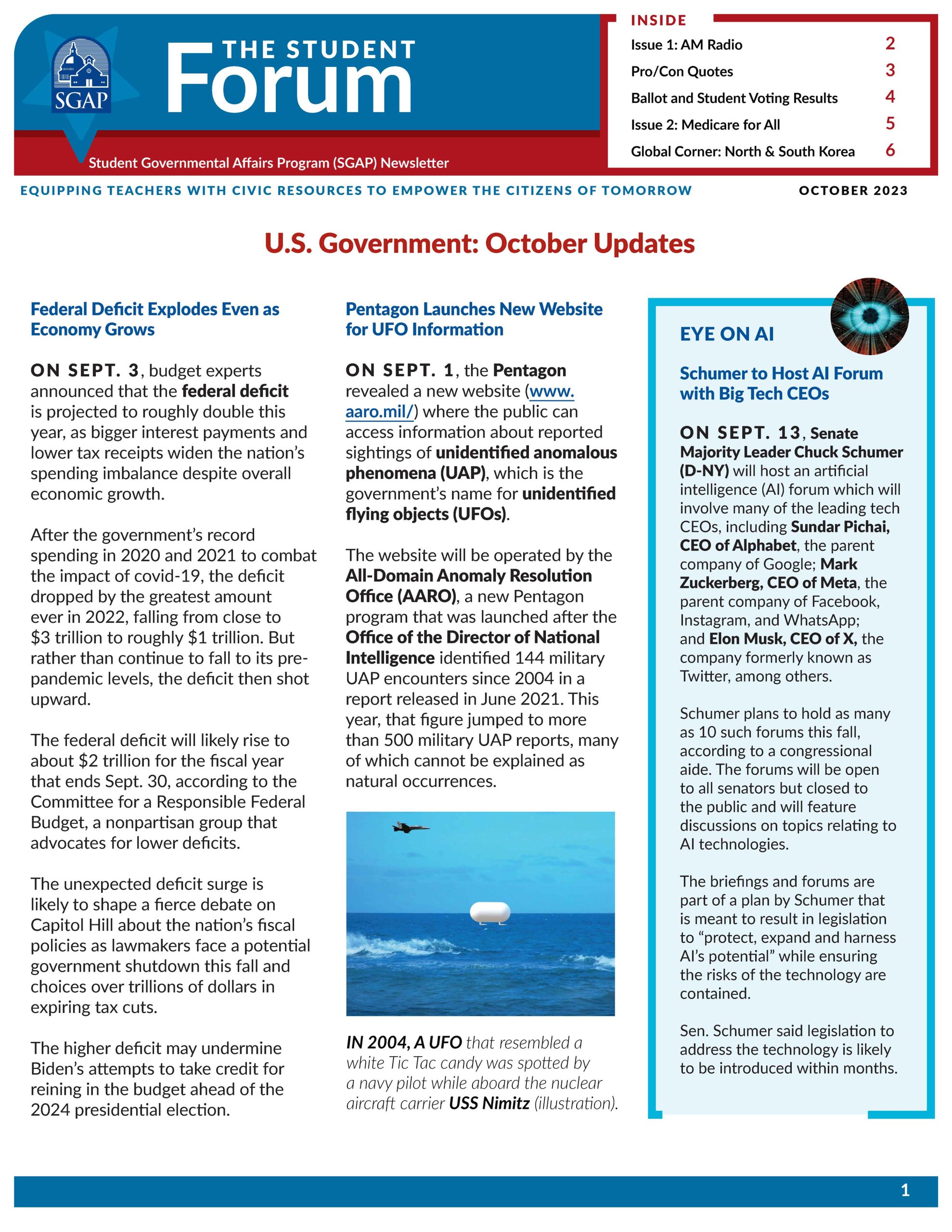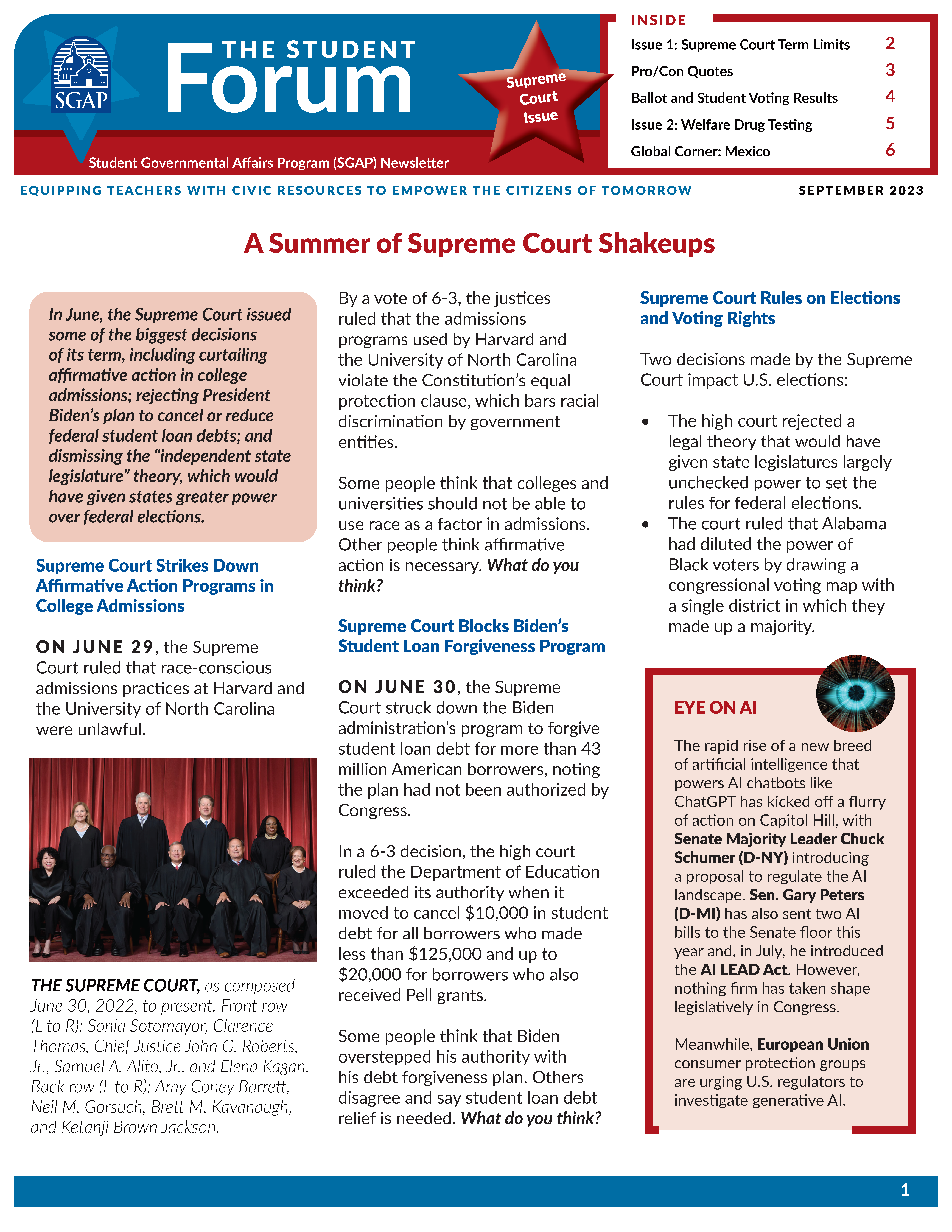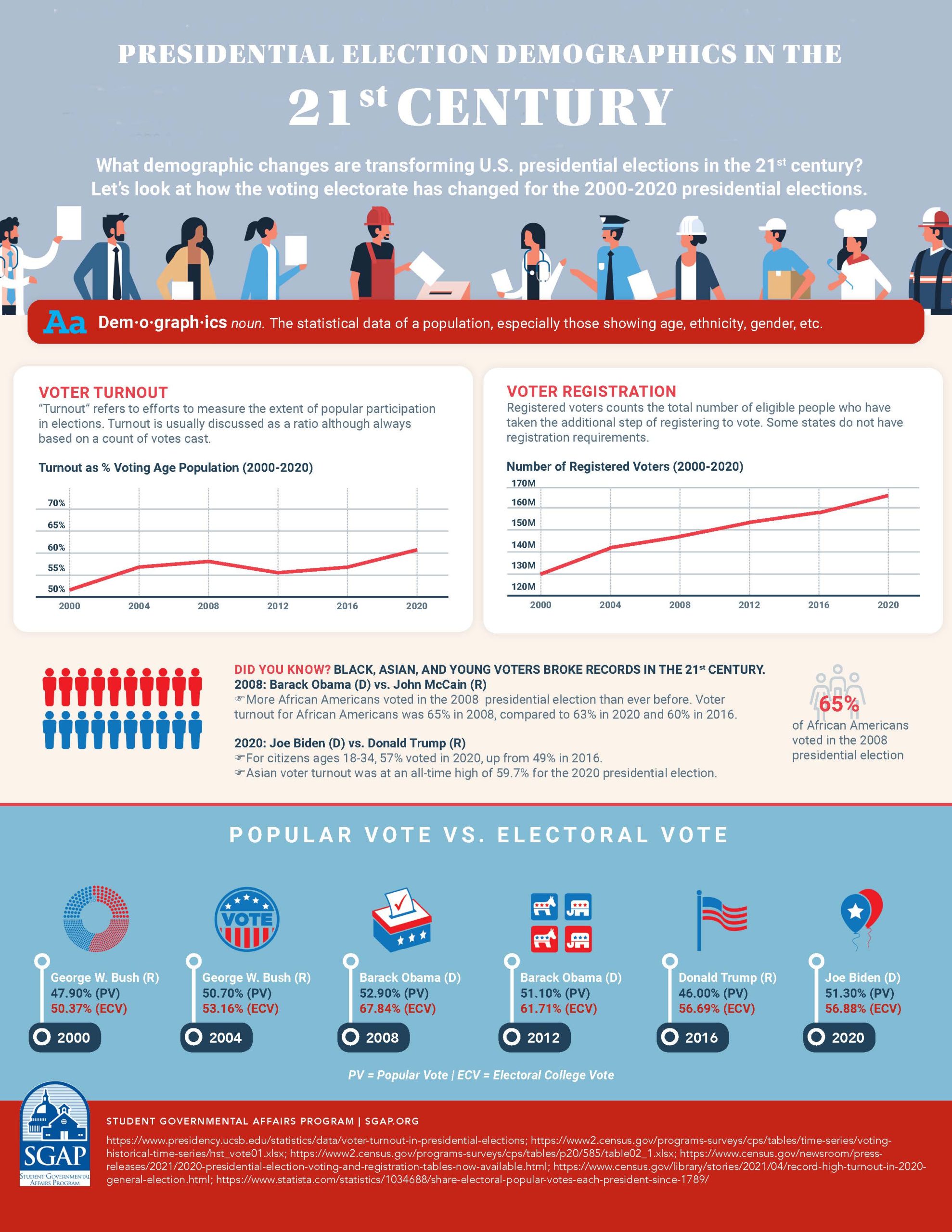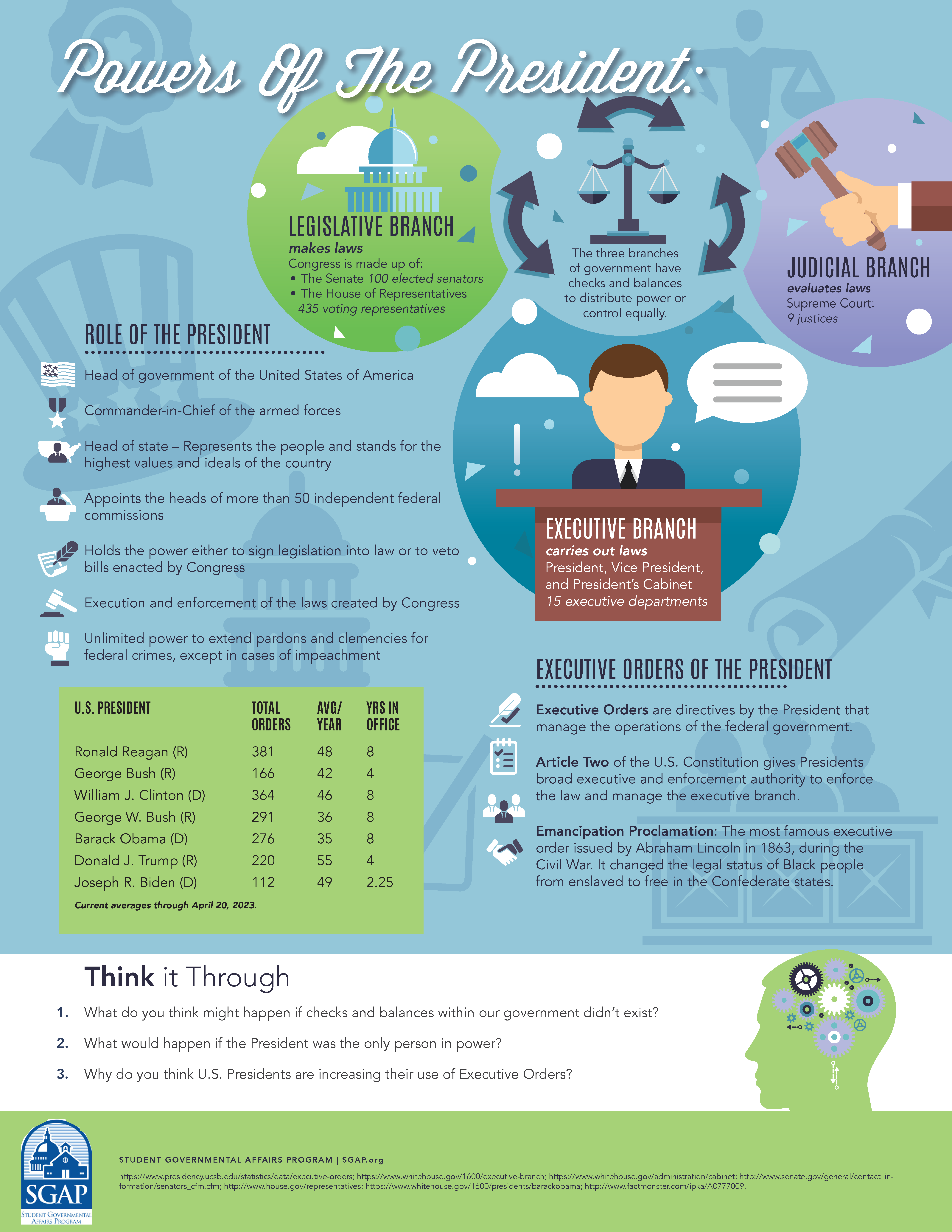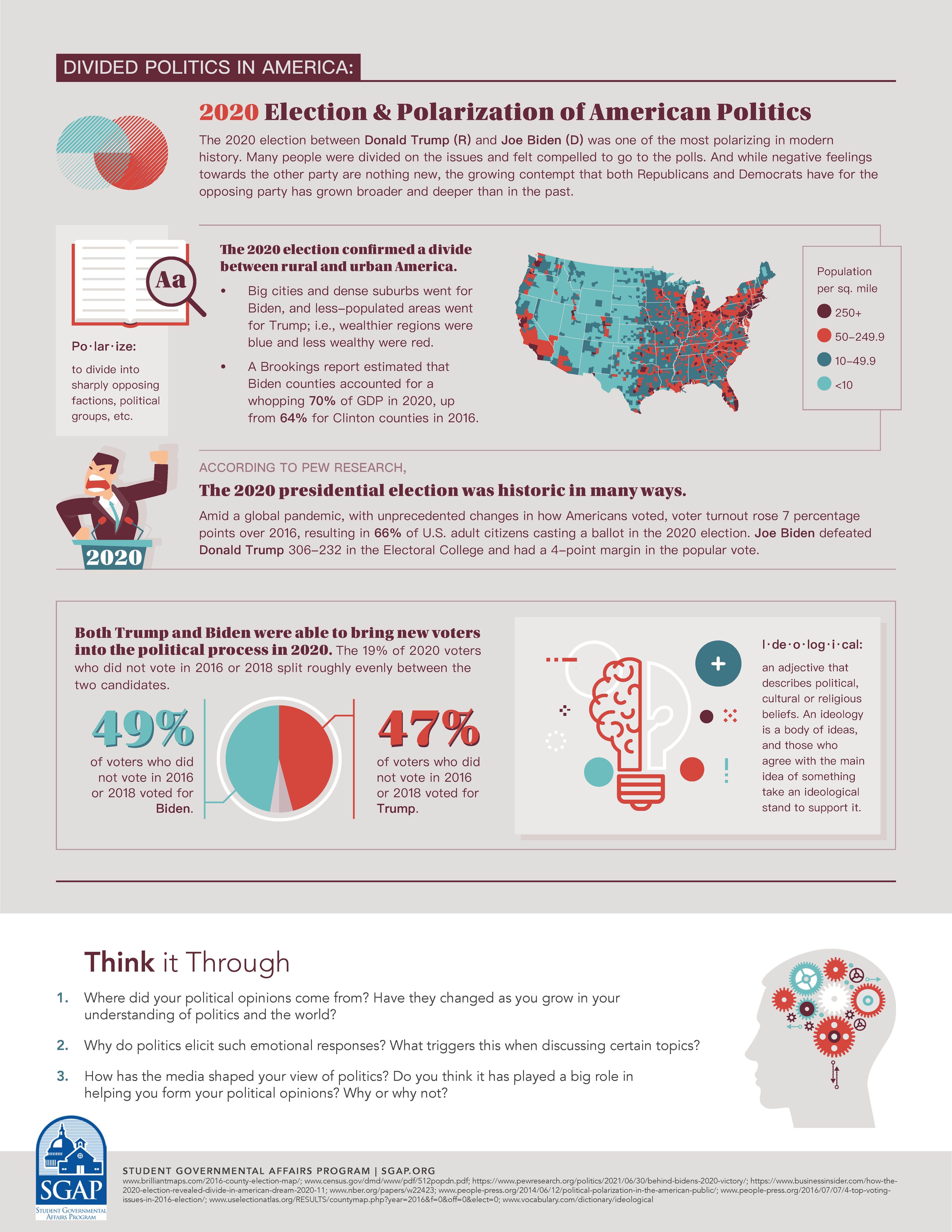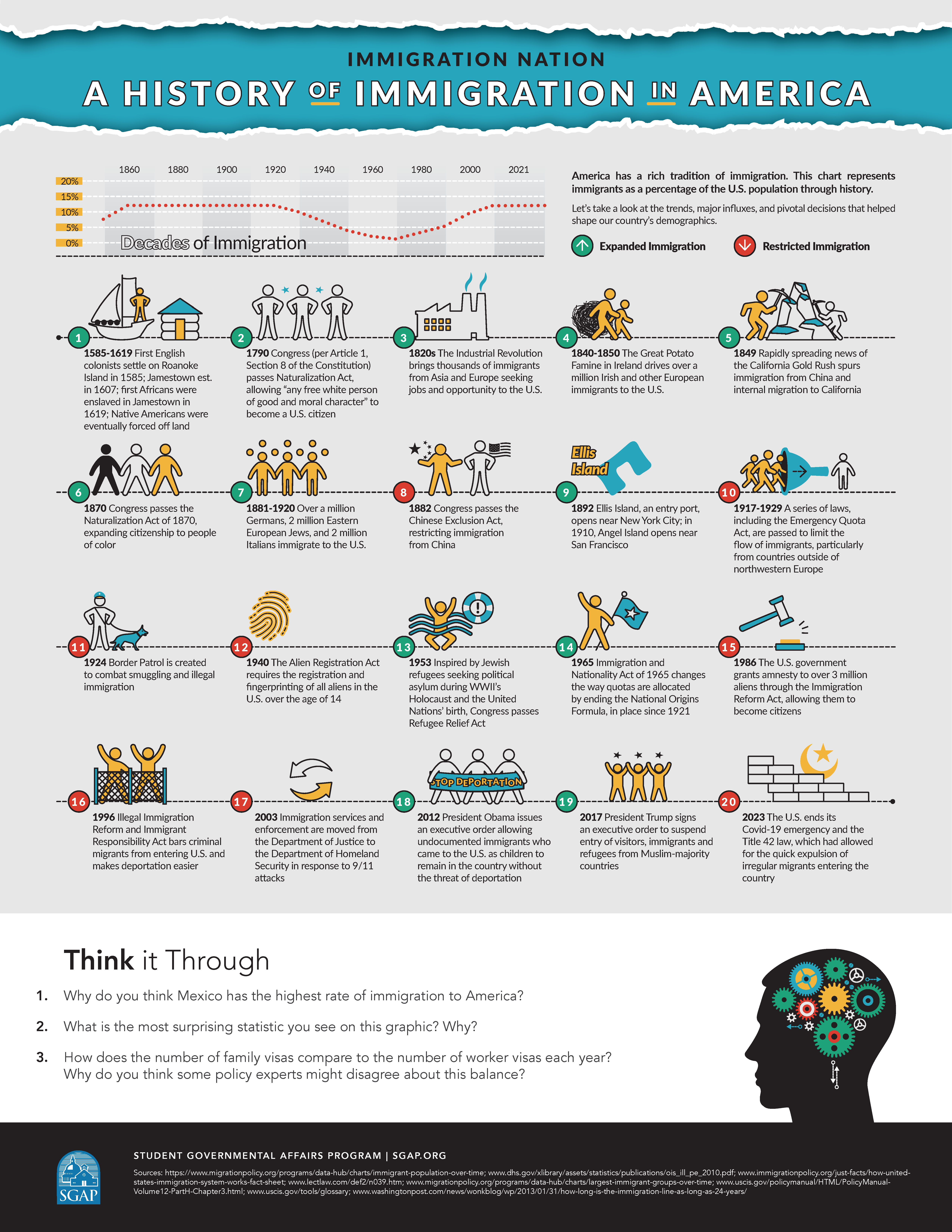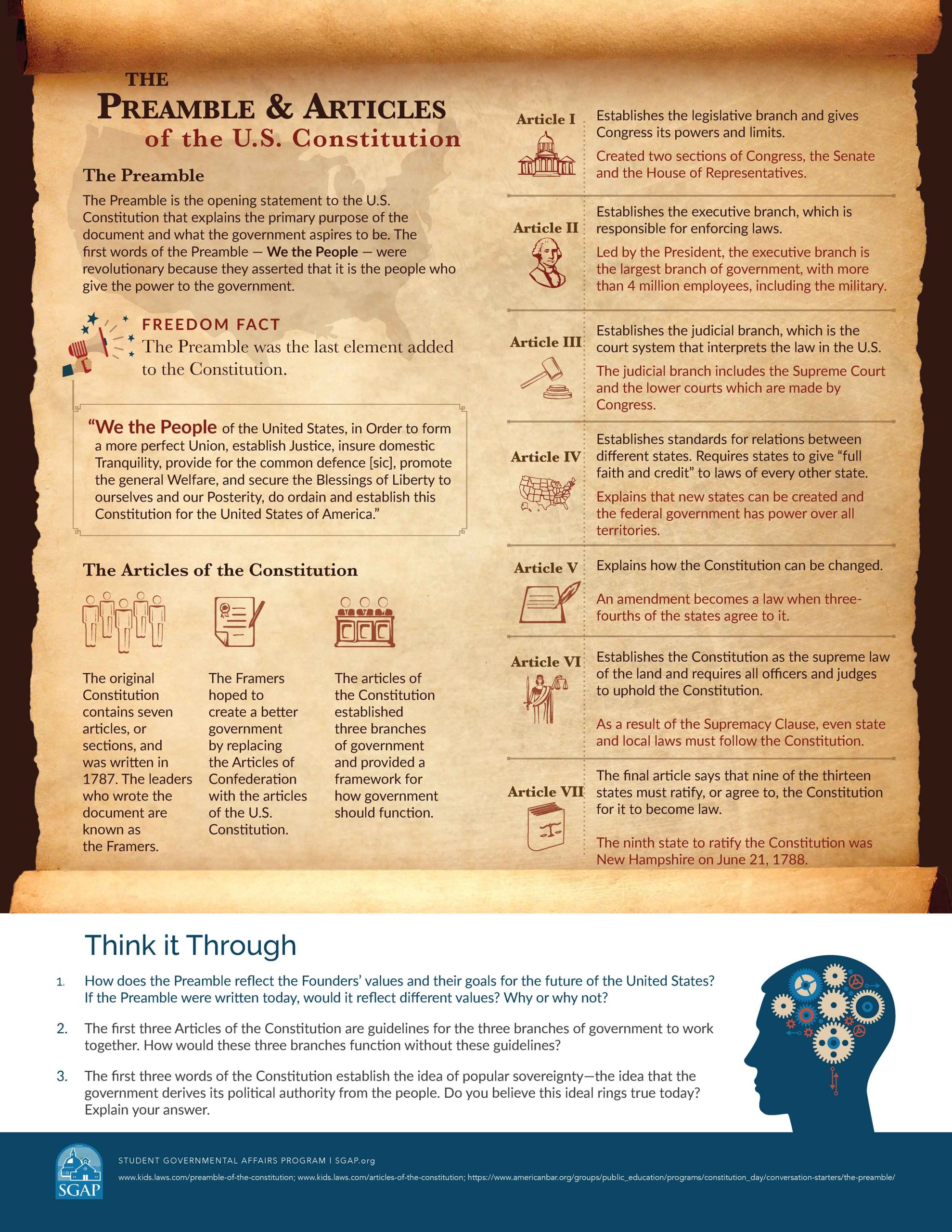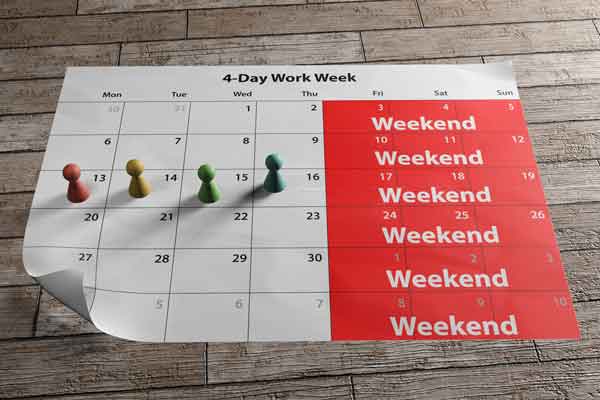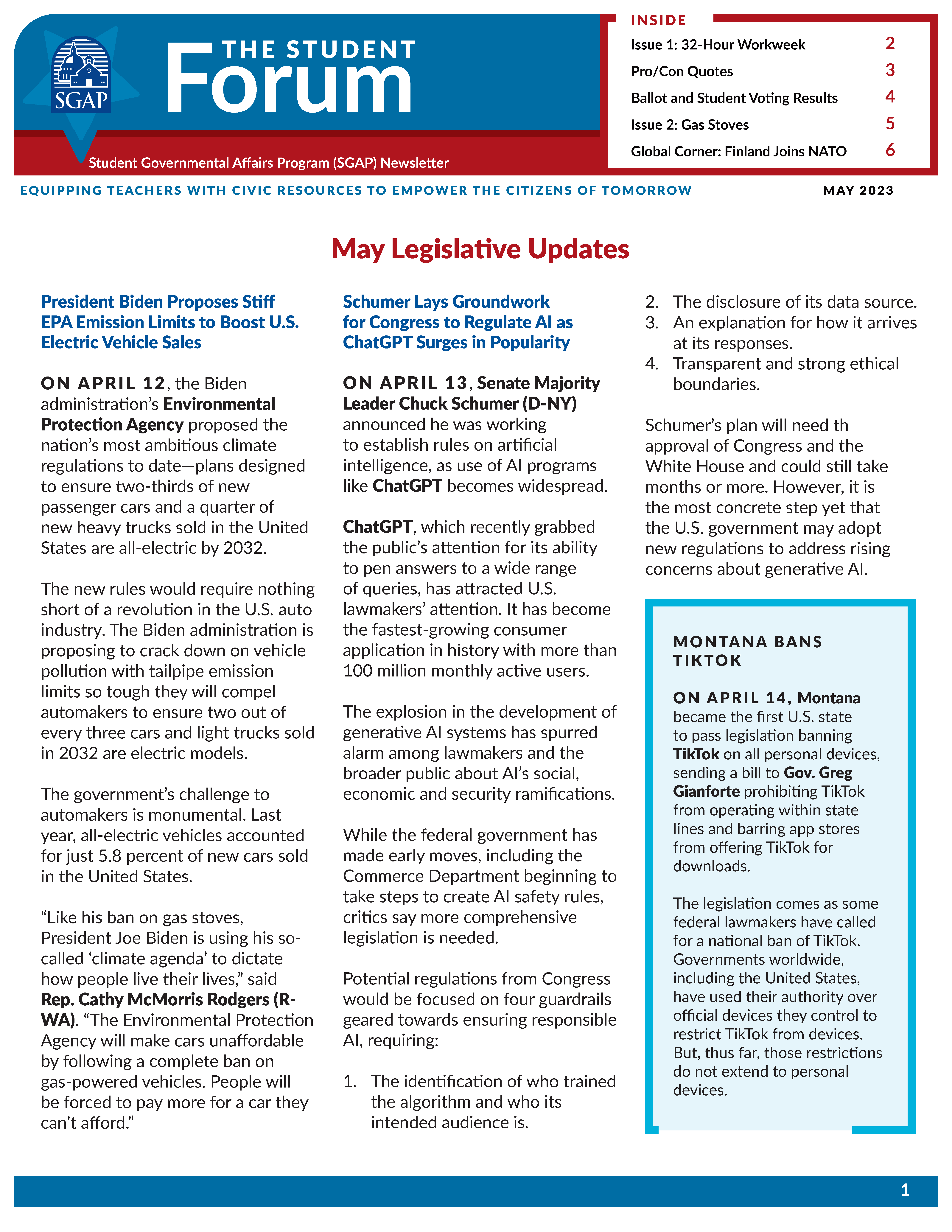RESEARCH LINKS

AM RADIO uses amplitude modulation (AM) transmissions. AM broadcasting was established in the 1920s, and AM radio remained the primary method of broadcasting for the next 30 years until television became widespread in the 1950s.
Issue 1: AM Radio
Congress.gov: S.1669, “AM Radio for Every Vehicle Act of 2023”
Fox News: “Officials Sound Alarm on Carmakers Dropping AM Radio in New Vehicles”
The Hill: “Bipartisan Lawmakers Introduce Legislation Requiring AM Radios New Cars”
Inside Radio: “Farm Broadcasters Make Case For AM Radio As A Rural Life Issue”
Washington Post: “End of a Love Affair: AM Radio is Being Removed from Many Cars”
wearebroadcasters.com: “82 Million Americans Depend on AM Radio”
Issue 2: Medicare for All
Congress.gov: S.1655, “Medicare for All Act”
The Nation: “The Blind Spot in Medicare for All”
Physicians for a National Health Program: “The Medicare for All Act of 2023”
ProCon.org: “History of Universal Health Care”
NYT OpEd: “The Dangers of Medicare for All”
House.gov: “Jayapal, Dingell, Sanders Introduce Medicare for All Act of 2023”
DISCUSSION QUESTIONS
Issue 1: AM Radio
- What are the arguments for and against Congress requiring automakers to include AM radio in new vehicles? Decide how you stand on the issue, then see if you can argue the other side’s position.
- According to the Nielsen Company, AM radio listeners tend to be older (about one-third of them are over age 65). As a young person, do you think AM radio is still useful? Why or why not?
- Lawmakers say AM radio is a critical source for receiving broadcast emergency information. As Rep. Josh Gottheimer (D-NJ) said, “When the cell phone runs out, the internet gets cut off, or the television doesn’t work because of no electricity or power to your house, you can still turn on your [car’s] AM radio.” Do you agree? Why or why not?
- Automakers say that cell phones are much better at broadcasting emergency alerts than AM radio. With today’s smartphones, is AM radio still necessary? Why or why not?
- AM radio is free to all drivers of cars that have it. Given this fact, how does AM radio compare to other modes of communication such as cell phone and internet reception?
Issue 2: Medicare for All
- Costs of private health care in this country have long been rising; two-thirds of bankruptcies in the U.S. are due to medical debt. Is our current health care system working for “We the People?” Why or why not?
- Should health care in the U.S. be a right or a privilege to citizens? Discuss.
- Proponents of Medicare for all say even if Americans’ federal taxes had to rise to pay for it, they would save money by no longer having to pay for employer-provided health insurance premiums, co-pays, and other out-of-pocket expenses. Do you agree? Why or why not?
- Opponents of Medicare for All say that government cannot effectively run the Postal Service or VA health system without losing money; thus, it would be a mistake to assume it could run the country’s health care system. Do you agree? Why or why not?
- What are the arguments for and against Congress passing a Medicare for All national health care program? Decide how you stand on the issue, then see if you can argue the other side’s position.


